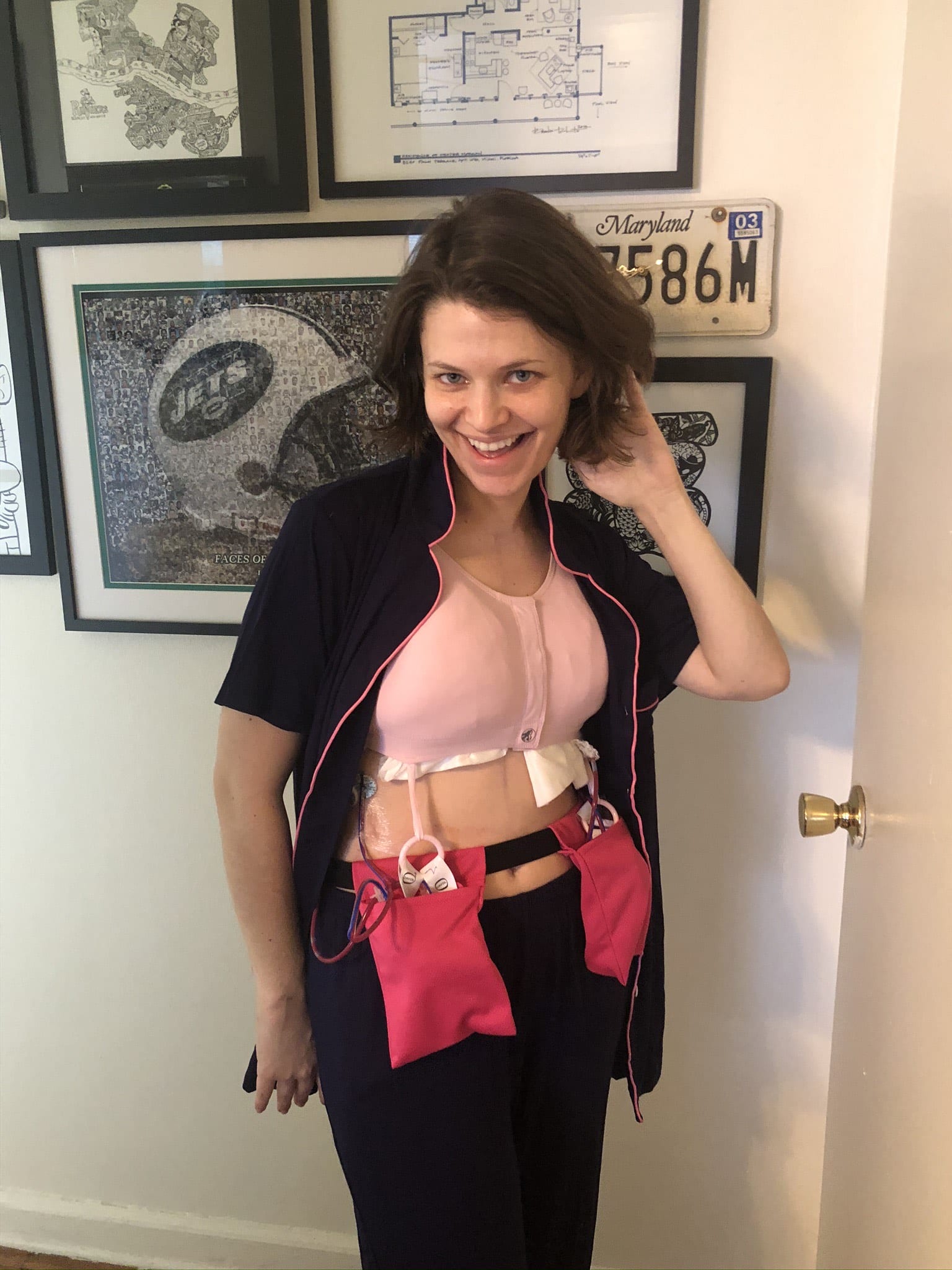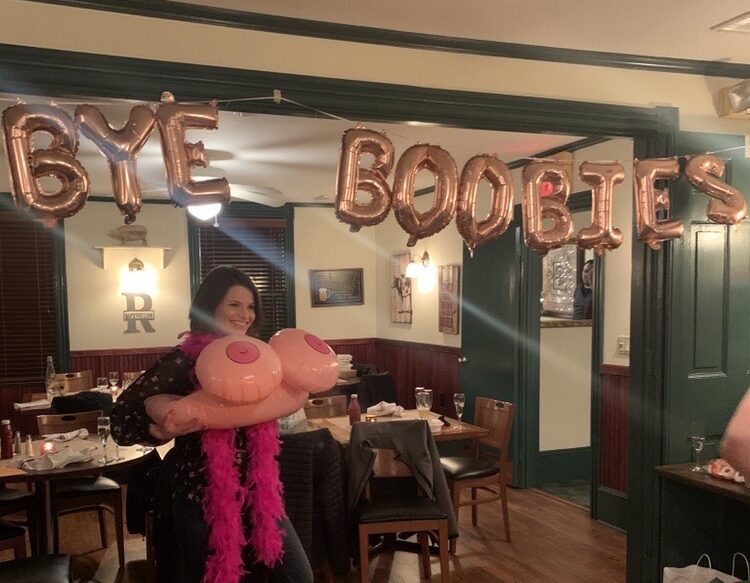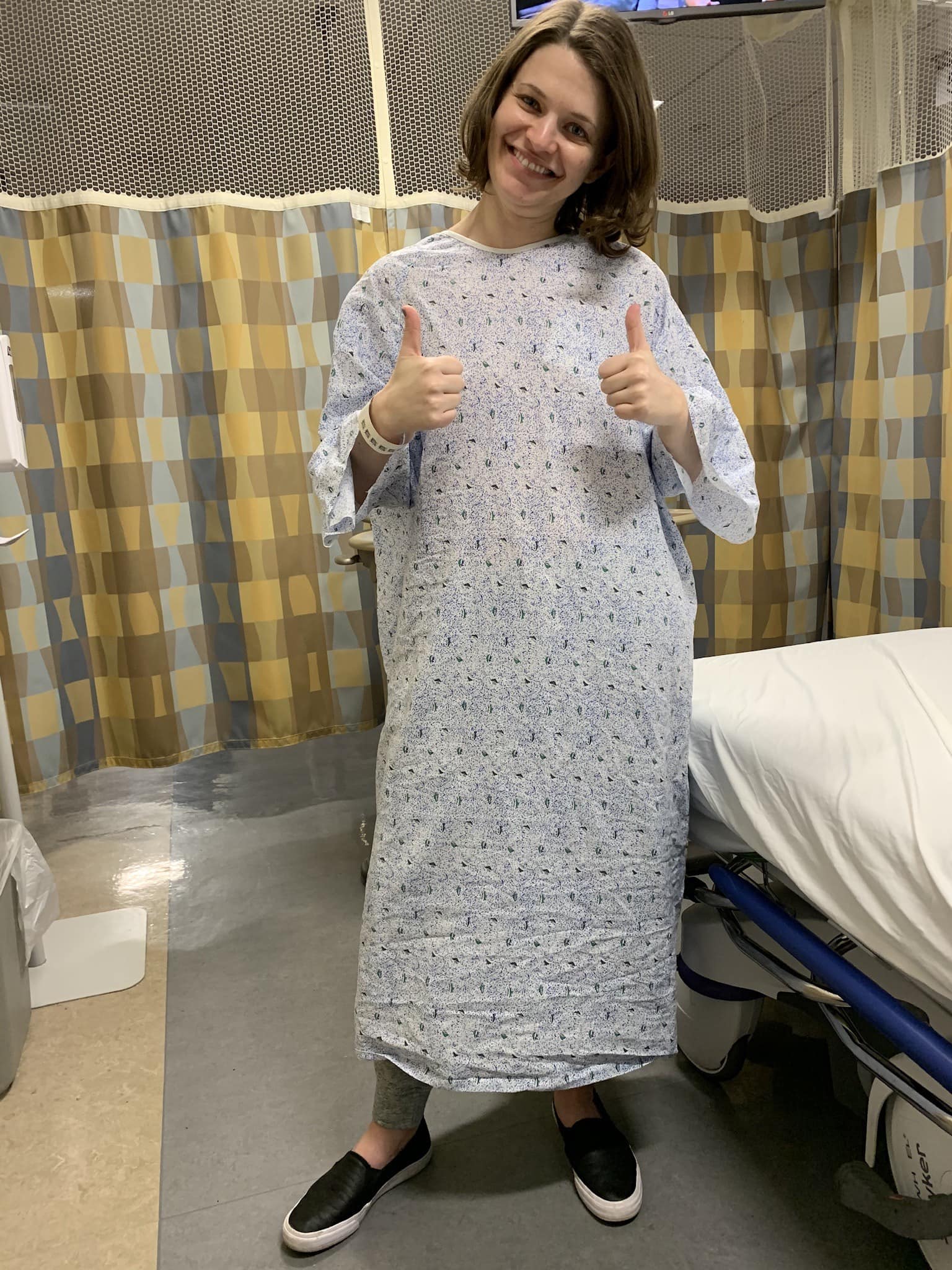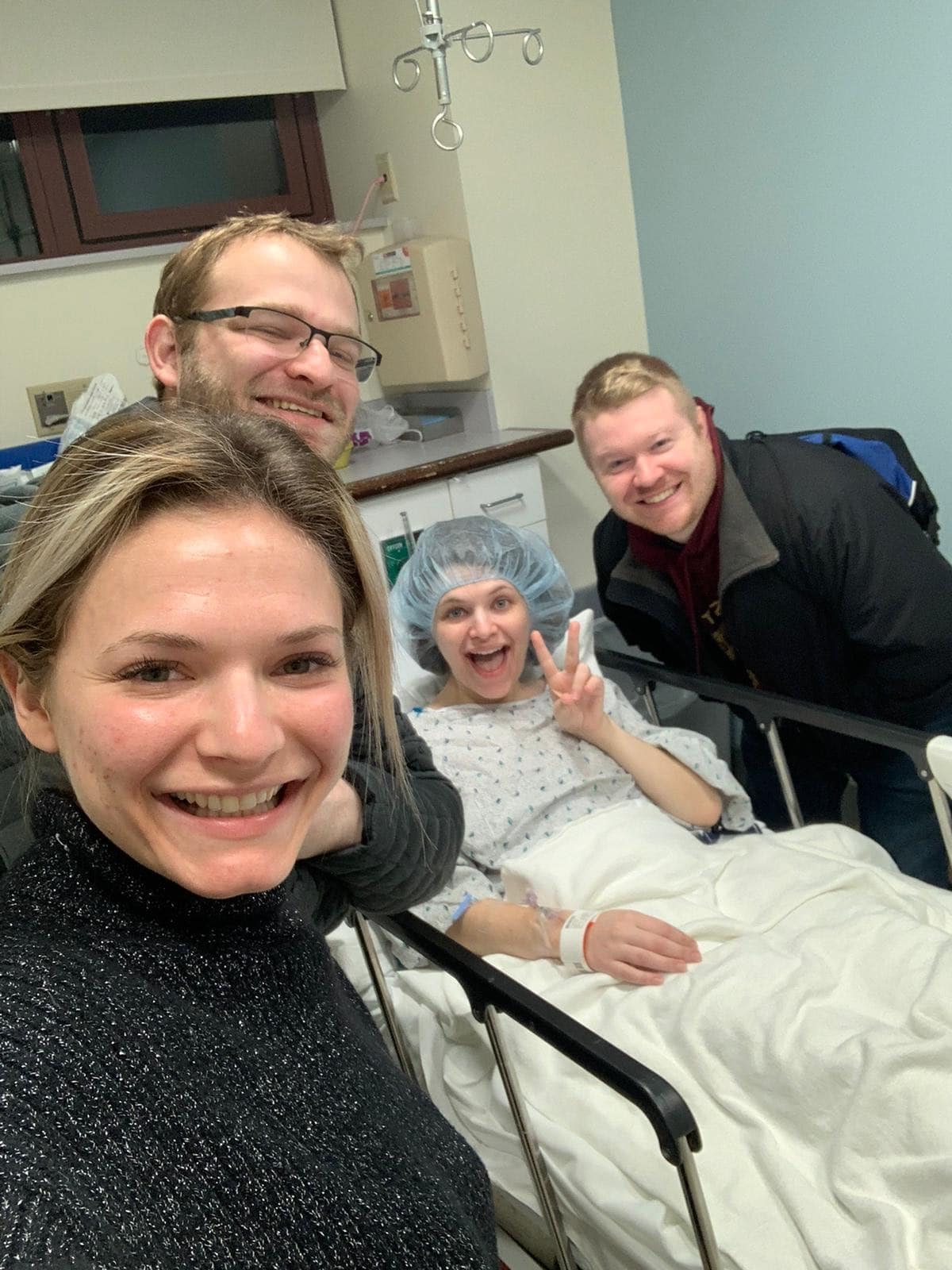
I discovered that I was BRCA1+ in November 2017 shortly before my 29th birthday. I have a strong maternal family history of breast cancer including my mother, my aunt twice, and great aunts. My mother was diagnosed with breast cancer when I was in elementary school in the late 1990s, completed genetic testing, and discovered that she was BRCA1+. Many years later when I was in graduate school, my mom told me and my siblings about her genetic status and encouraged us to get tested when we were ready.
I sat with this information for several years before finally making a genetic counseling appointment in fall 2017. I went into testing assuming that I would be positive for the mutation and would be pleasantly surprised if it was negative, figuring that would be the easiest way to cope with either outcome. Intuitively, I knew I was BRCA1+, so when I got the positive result it validated what I already intrinsically knew. After two years of breast MRIs and mammograms, I decided to have my prophylactic bilateral mastectomy in January 2020, a couple days after my 31st birthday and a phenomenal bye bye boobies birthday party with family and friends. I was so confident in my decision to have a preventative mastectomy. I was determined to reframe this huge surgery into a celebration of life and taking control of my future. I had done a ton of research, talked to many other women about their mastectomies, and knew all the lingo and questions to ask my very capable surgeons. My breast and plastic surgeons agreed that as a young healthy woman that I would have a very positive outcome. My breast surgeon said that she was excited for my mastectomy and reconstruction because she believed that I would have aesthetically good results. I never for a second thought that things might not go to plan.

I had my nipple-sparing mastectomy with placement of over-the-muscle tissue expanders on January 6th, 2020. After surgery, there were issues with blood flow to my nipples, especially my left nipple, that my surgeons monitored closely. My breast surgeon enthusiastically told me that the nipples want to live and would likely survive. I believed that my nipples were resilient and would heal, but after three weeks with minimal progress despite use of various creams to promote healing and stimulate blood flow, my left nipple and surrounding skin continued to get darker and darker as did a small part of my right nipple. I remember sitting in my plastic surgeon’s office on a Thursday afternoon, thrilled to finally have my last 2 drains out after 2.5 weeks, when he told me that he would remove the necrotic tissue on my left breast, including my entire left nipple and part of my right nipple. In that moment, I went into a full comedy routine a la Marvelous Mrs. Maisel which had the whole plastics team laughing. The moment that the plastics team stepped out of the room, I immediately started crying. How could this be happening? I’m young, healthy, and was going to have a great aesthetic outcome and now I’m losing a nipple. It wasn’t supposed to happen this way but I continued to smile, make the best of it, to crack jokes and remain optimistic. The necrotic tissue was removed the following Tuesday when I bid farewell to my left nipple and part of my right nipple.

I chose to focus on the funnier moments to balance out the moments of medical trauma, like when the water stopped in the middle of my pre-op Hibiclens shower the night before my revision surgery so I stood wet with my breasts wrapped in a black garbage bag calling friends that lived nearby to see if I could finish my shower at their house. I had a wound vac for a week after this revision surgery which I joked made me feel like a cow constantly being milked. I decorated my wound vac to look like it had a face and pretended that it was a walkie-talkie. I chuckled as I would stuff my bra like a middle school girl before I went out to make my chest look a bit more normal. These moments of levity brought lightness to a very challenging situation that I had little control over.

Once the wound vac and drains were removed, I was left with a giant three-pronged scar on my left breast and a smaller version on my right breast. While it was nice to see my body without any dying tissue, I felt deformed and disfigured. I thought I was in the clear until the centers of both wounds didn’t heal resulting in multiple in-office visits getting new stitches and the sudden development of a seroma which lead to a hospital visit for ultrasound-guided drainage. It was then that staying positive and making jokes to stay afloat didn’t feel like enough anymore. Smiling became draining, laughing felt dimensionless and exhausting, and staying optimistic was getting harder. I grieved the loss of my breasts as I knew them and the unexpected loss of my nipple. I struggled with temporarily being completely flat. This process was changing me both physically and emotionally in ways I didn’t anticipate. I leaned on friends, family, and started therapy for additional support.

After a few dark weeks, my healing started to turn around. Both breast wounds closed and the serous fluid reabsorbed into my body. I was cleared to drive after over two months and regained a bit more independence. It felt amazing to see my body rebuild from the trauma it had been through. I finally started having expander fills slowly but surely and felt more like myself everyday as the intense anxiety over what complication might be coming next began to subside as my body continued to transform and heal.

Through my mastectomy, I learned that positivity isn’t about perfection. Positivity is about having restorative practices like finding humor in stressful moments, getting help from others, maintaining optimism when things don’t go as planned, and focusing on what we do have control over when life feels overwhelming and chaotic. Remaining positive isn’t all sunshine and rainbows, it’s about finding the break in the clouds where the sunlight is trickling though that reminds us that the storm will come to an end.
By Sabrina Starkman
